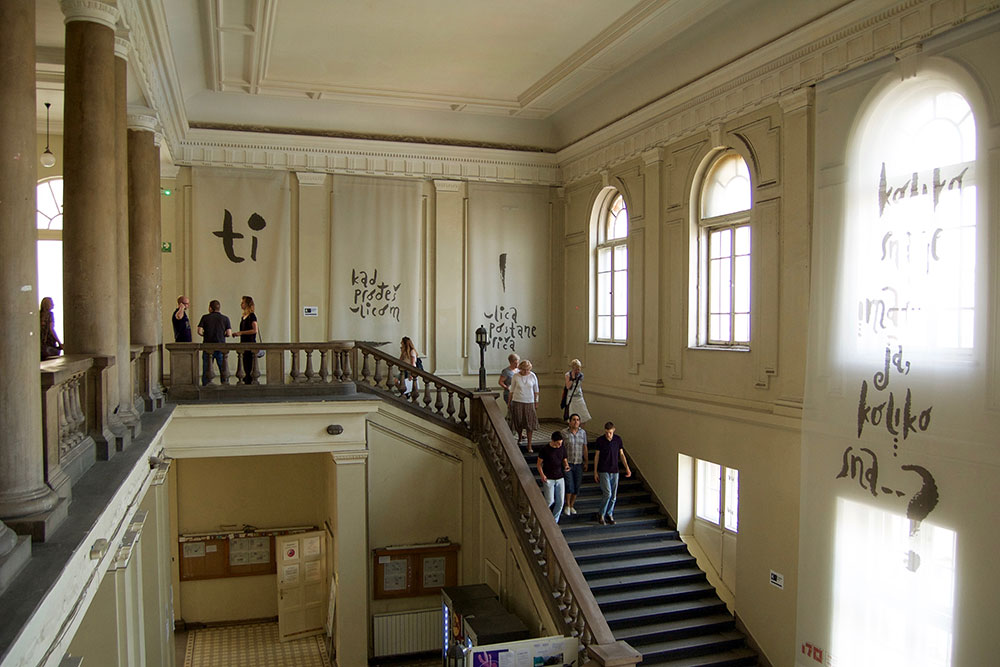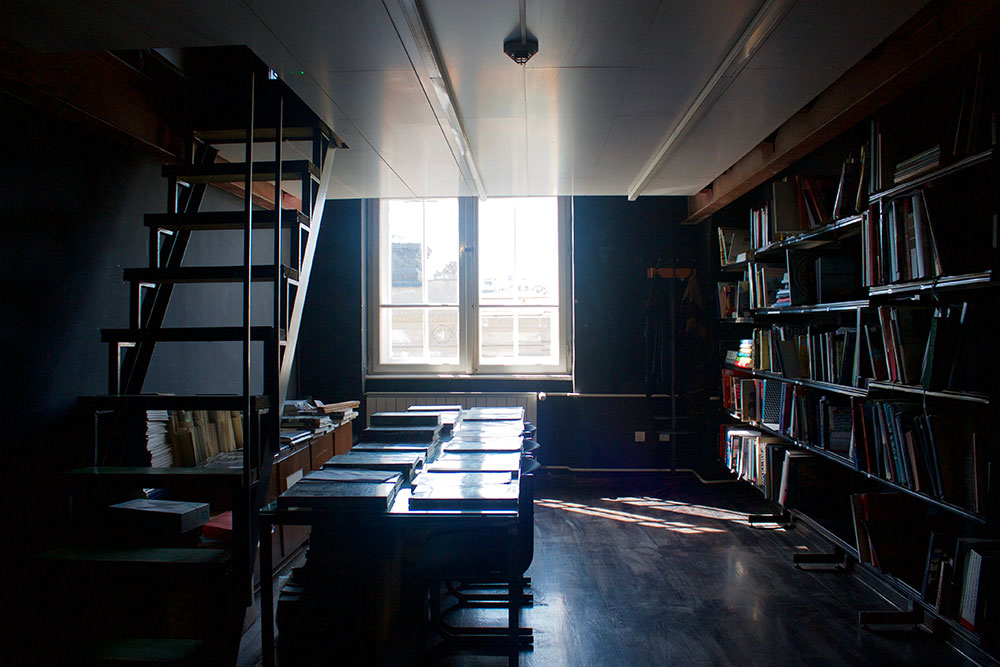
Faculty of Architecture in Belgrade, Main Hall | Photo: M.Bulatović
Doctoral Studies Guide
Doctoral Studies – Admission and Entry Requirements
Doctoral Studies – Service Information
The Faculty of Architecture will provide support for international students regarding accommodation and settling in, studying and student life, living in Belgrade. A general overview of this information is given in the University of Belgrade Welcome Guide.
Visa and immigration
EU citizens can enter Serbia without visa. If you are travelling from outside EU, please check whether you need a visa and/or residence permit. A visa must be applied for before departure to Serbia in the country where the applicant permanently resides.
For more information regarding the issuance of visa, please contact the nearest diplomatic-consular mission of the Republic of Serbia.
The Faculty of Architecture will provide help and support on this matter, but will not be hold responsible for applicant’s visa application. The most essential information for foreigners before and upon arrival in Serbia is available at: Ministry of Interior of the Republic of Serbia – Information for Foreigners.
Health Insurance and Medical Assistance
Foreign citizens in Serbia are entitled to receive urgent medical care and acquire health insurance. More information on this issue is available at Serbian National Health Insurance Fund.
Student Life
Studying at a university is a full-time commitment. An academic year is 60 ECTS and 40 weeks long and divided into two semesters – fall and summer. It begins in October and ends in June, with the usual Christmas, Easter and summer breaks.
Before the start of the semester, the faculty sends out information to all accepted students, providing all general information needed at the beginning of the semester, such as academic calendar, lecture timetable, available elective courses, available conferences and seminars, mentor list with their expertise and alike.
All the information on studying or administrative processes regarding studies can be found at the Faculty’s website so the students are expected to follow these notices. All students must obtain official e-mail account upon admission and are obliged to use it in official correspondence. The use of official e-mail ensures timely information sharing and access to other Faculty’s services.
On admission, all doctoral students get a supervisor to guide them through the studies. The supervisor’s primary task is to help the doctoral student to develop into an autonomous researcher who takes an academic approach. The role of the supervisor is more of a discussion partner, someone with who to discuss ideas, texts, issues and limitations, as well as to provide support at times when studies appear as challenging.
During the second year of studies, based on the student’s specific area of research he or she is assigned with temporary mentor who may or may not remain mentor on the dissertation. If the topic is multidisciplinary, the University of Belgrade supports joint supervision of doctoral thesis having one mentor from the Faculty of Architecture in Belgrade and the other from the partner institution (the list of partner institutions having formal collaboration with the University of Belgrade are available here: http://bg.ac.rs/en/international/cooperation-agreements.php).

Library at the Faculty of Architecture in Belgrade | Photo: M.Bulatović
Teaching is provided in five blocks being held each fourth week of the semester from Thursday to Monday, with the possibility of scheduling the necessary individual consultation. Classes are held in classrooms and seminar rooms equipped with Wi-Fi. The most common form of courses at doctoral studies is a lecture. In addition to the lectures, a course may include other assignments as well, such as individual or group assignments, participation in research projects or others.
Students spend much of the time learning how to critically read the course literature and prepare and complete required assignments, so they have at their disposal a separate room for PhD students and library with a reading room, access to internet and KoBSON. Aces to KoBSON can be remote but within the territory of Serbia.
Our PhD students form part of the vibrant scholarly community of the University of Belgrade, but their opportunities for intellectual and social engagement do not stop there. A doctoral student needs to show initiative and take responsibility for his or her studies.
Planning studies is an integral part of studying at university. Individual student engagement to deal and consider a research in every possible way and from different angles is highly appreciated at doctoral studies, as well as participation in conferences, workshops and seminars related to the chosen topic. In order to encourage this activity, it is enabled to recognize ECTS through this type of activity and in agreement with the teacher and/or mentor.
Living-Through Kit For Doctoral Studies
Traversing the PhD experience is significantly more heterogeneous and personal than any previous. Doctoral studies offer high level of freedom in the topics you wish to propose and learn about, as well as in the ways you wish doing it. You are in charge, so the research you produce will be yours, individual. Your thesis will have your name attached to it.
One has to remind himself that a PhD program is a very specific kind of experience that has specific deadlines, but there is no one to hurry you, and you can easily lose track of time. You will inevitably find yourself working hard and sometime with no particular end. Therefore, you need to be determinate to deal with the pressure. It is an open field, not a bordered playground. If you find the following appealing you will be positively challenged throughout it.
| The first thing in being a doctoral student is to re-learn how to read, write and interact with others through a serious argumentation. | READING: You need to scan a scientific paper and shortly decide if you should invest yourself in reading it in depth. If you do, you should focus on researching presented novelty and possible links with your own research. |
| WRITING: Writing an academic paper is about being comprehensive and concise at the same time. You need to be technical yet readable. | |
| READING AND WRITING: The most valuable tip in reading and writing is to always have a time-set research turn in order to realize what you were doing, where you are going and what is the next step. Go for the effectiveness by constantly switching in between reading and writing. | |
| NETWORKING: Networking can bring you a possible collaboration and chances of writing more papers, so be involved in research projects and be up to date with valuable conferences. |
Doctoral studies have many perks that make it a great experience. You will meet interesting people and you will have the chance to explore your own ideas and to be creative. You will have the chance to travel – just get results and present them in conferences. Enjoy the life of a student and make use of your free time.
Doctoral studies are a great time, make good use of your chance of being here.



